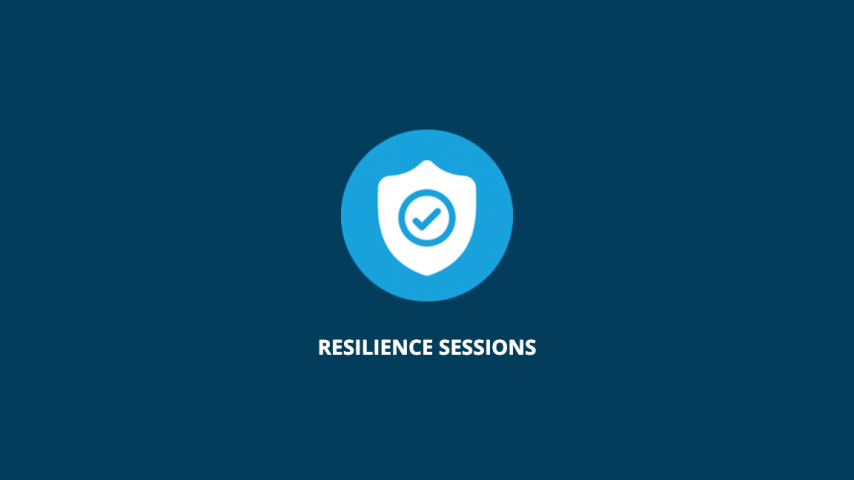
We’re about a month out from Building Innovation 2020: Virtual Edition.
This virtual meeting will be like no other event that we’ve produced. We will bring to you two days of the best information around building technology, resilience, and workforce on August 18-19. BI2020 attendees also will be able to earn up to eight AIA-approved CES/HSW credits for full conference attendance.
Here is the Resilience session lineup:
- Zero Energy on a Shoe-String Budget with Marc Clinch, Chief Facilities Officer with the School District of Osceola County in Florida, and Philip Donovan, AIA, Project Architect on NeoCity Academy, and Principal, Little Diversified Architectural Consulting. This presentation will cover lessons learned on a case study of Florida's first zero-energy school, which is expected to save the school district of Osceola County, Florida more than $115,000 annually on energy. Attendees will take away many lessons, including how to champion a zero-energy project effort by leading stakeholders through early key goal-setting exercises, how to choose the right A/E and construction teams, and how and when to utilize energy models and trade-off methodologies for decision-making.
- Convergence of Design and Resilience in a Hospital for the Future + Minimally Invasive Laboratories with Judy Ou, Associate Principal, Perkins Eastman Architects, Robin Whitehurst, Technical Principal, Bailey Edward Design, Inc., and Carlos L. Amato, Principal, CannonDesign. The design of the New Stanford Hospital in Palo Alto, California, sets new standards reflecting state-of-the-art resiliency elements. These elements include cutting-edge architecture, a 40,000 SF rooftop garden, LEED Silver-equivalent sustainability features, patient-centric design details, and hospitality-infused furnishings. This dream project grew to reality with an IPD Big Room strategy as the client, executive/design architect, medical planner, and general contractor co-located onsite using BIM to collaborate on this development.
- How We See Now with Billie Faircloth, Partner, KieranTimberlake. Faircloth leads transdisciplinary research, design, and problem-solving processes across fields including environmental management, urban ecology, chemical physics, materials science, and architecture. In this session, Faircloth will discuss resilience through the daily actions and diverse projects of KieranTimberlake.
- How to Pay for Mitigation with Kayed I. Lakhia, Director, Hazard Mitigation FEMA/DHS, Sean Kevelighan, President & CEO, Insurance Information Institute, Michael Hernandez, Vice President Housing Access, Affordable Housing Initiatives, Fannie Mae, and Carl Hedde, Principal of CGH Consulting, LLC and Chair, NIBS. The losses due to natural disasters in three of the last 15 years exceed $100 billion, and it’s getting costlier. The discussion panel will focus on how to pay for the mitigation activities through a public/private partnership. The ground-breaking white paper published by NIBS on Developing Pre-Disaster Resilience Based on Public and Private Incentivization calls for a layered cost-sharing approach among many of co-beneficiaries of resilience — owners, lenders, taxing authorities, and possibly others.
- Housing Affordability and Resilience with Ryan Colker, Vice President, Innovation with the International Code Council, Laurie Schoeman, Senior National Program Director, Resilience and Disaster Recovery, Enterprise Community Partners, Inc., and Christopher Bourne, Deputy Assistant Secretary for Innovation, U.S. Department of Housing and Urban Development. This session will examine the importance of including resilience in strategies to address housing affordability, the role of building codes in supporting resilience for low income households, and need to examine total cost of ownership/rental and life-cycle cost as a key metric for affordability.
BI2020: Virtual Edition will feature a host of sessions around resilience, technology, and workforce. It also will cover the challenges that COVID-19 brings to the built environment.
It is open to all within the built environment and features a “pay what you can” registration fee. Registration fees will be used to support the cost of the technology, and the NIBS 501(c)3 non-profit mission to serve the public interest by advancing building science and technology to improve the built environment. Register today!
Want to learn more? We’ll break down the Workforce sessions on the BI2020 agenda in our next post. Follow us on social media! We’re @bldgsciences on Twitter, or you can find us on Facebook.




